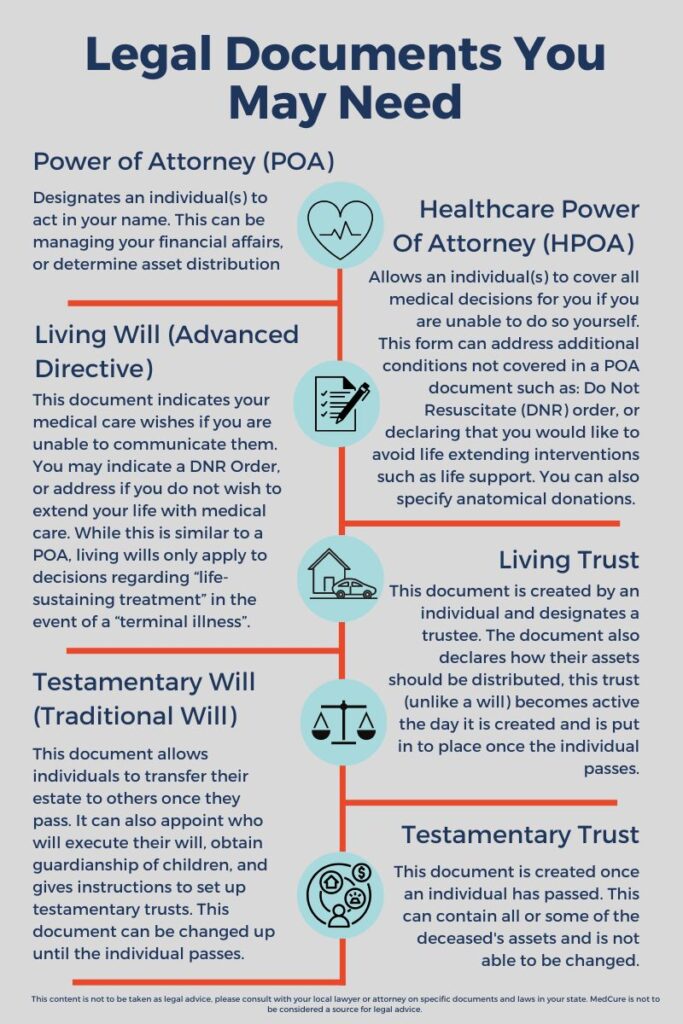The best time to get your affairs in order is when you are financially secure and in good health, but regardless of when these documents are completed, it can be an overwhelming task. Knowing what documents you need is the first step! We highly recommend contacting a local Estate Planning Attorney, or Estate Law Attorney. They are able to provide recommendations and legal advice on which documents best suit your current and future needs. These experienced law professionals have an understanding of state and federal laws regarding your estate. They can also assist with creating a will, designating your beneficiaries, establishing power of attorney or medical power of attorney, setting up a trust to protect your assets, and more.
The chart below identifies common documents used with end-of-life planning, what they are, and how they are used. State restrictions vary, but this generalized summary will help give you some background while getting your affairs in order.

Not only will your loved one, next of kin, or trustee need access to some of the documents listed above, but they will also need access to other records you have. To make things easier for them after your passing, and allowing them time to grieve properly instead of stressing over hunting down these items, consider compiling a file or folder full of the following items and storing it in a safe place they can access:
- SSI Number or physical Social Security Card
- Legal Certificates: Birth certificate, Marriage Certificate, Divorce documents, Citizenship documents
- Passport
- Personal Information: place of birth, date of birth, maiden name or married name, residence address or address of medical treating facility if on hospice/medical care, medical history, and medications list
- Contact information for family, close friends, doctors and lawyers/attorneys
- Physical asset list: valuables such as jewelry, art, antiques, home deed, information on rental properties or vacation homes, and car titles
- Non-physical assets: bank account information, pension, IRAs, 401Ks
- Tax information: most recent tax return, property tax information
- Liabilities: Car loans, mortgages, school loans, credit cards or lines of credit
It’s important to review these documents every couple of years to ensure that they are up-to-date and reflect your most recent wishes. It is also important to update the medical information as new diagnoses come up, or new medications are being taken.
So what does MedCure need from this list when someone wishes to donate? The most common items we ask either you or your next of kin for are: Power of Attorney/Healthcare Power of Attorney documents – as they may state your wishes on donation and when the designee is allowed to make decisions for you – the donor’s social security number, and the donor’s medical/surgical history. Our goal is to honor your wishes while also making the process of donation as easy as possible. It’s so important to make your wishes known to your family to assure everything is properly handled when the time comes.
It is never too early to plan ahead, and you can register with us at any time online or over the phone. We hope this helps shed some light on getting your end-of-life plans in order, and helps with communicating your wishes with your loved ones.



